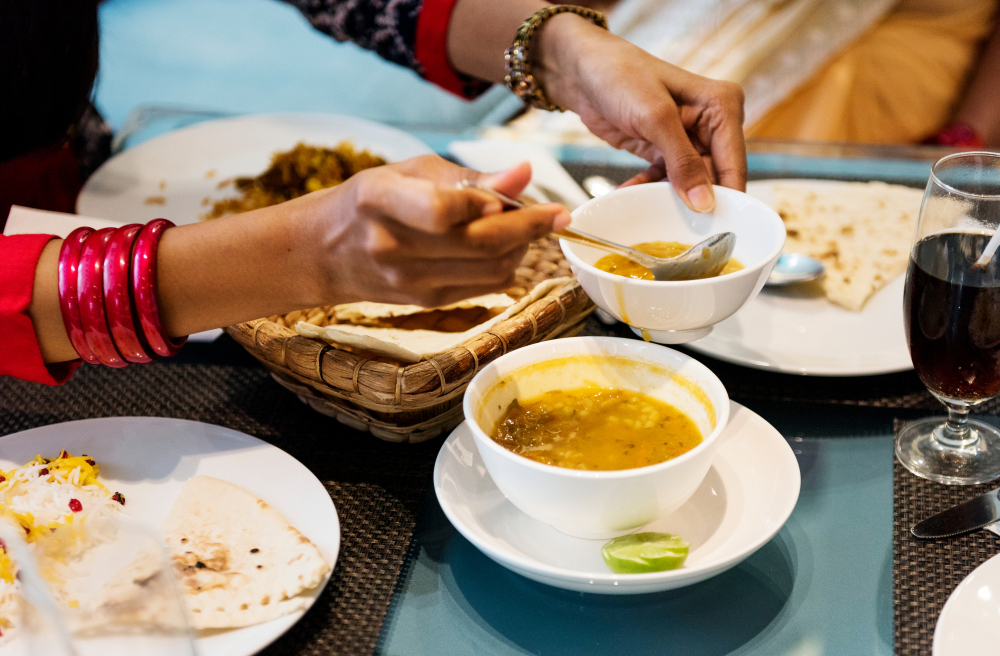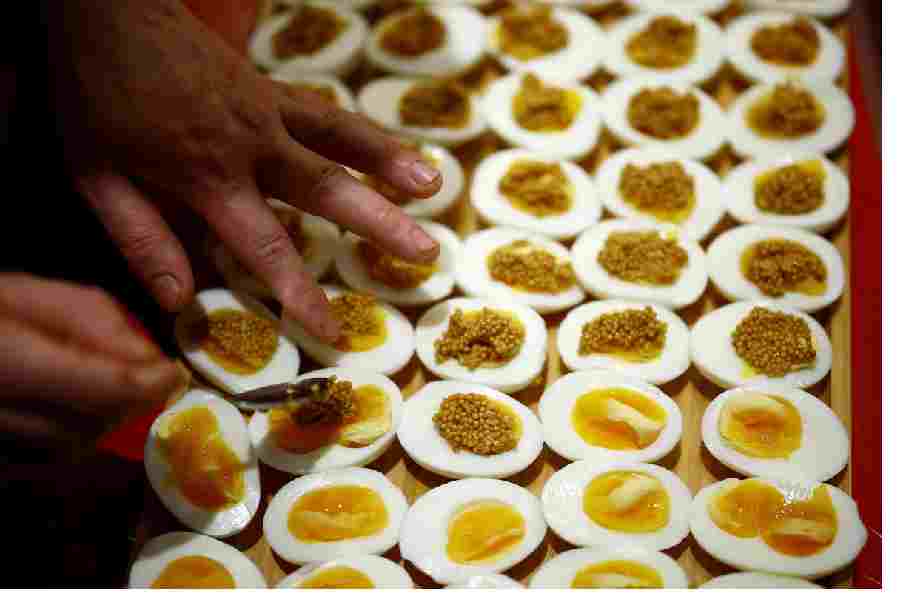The notion of quality time finds different expressions under differing cultural conditions. An old-fashioned way of expressing it was the claim that families that eat together stay together. Earlier, family bonding was associated with praying together, but as the sea of faith retreated with its melancholy, long, withdrawing roar, the family dinner by itself became the cementing factor. A century ago, eating together could mean establishing the subtle balance between hierarchy and equality, inculcating discipline and encouraging socialization or, more recently, exchanging ideas and generally having fun. As families grew smaller and everyone grew busier — even children had tutorials, projects and, perhaps, computer training — eating together became a rare event. The television, and later other forms of home entertainment, often drew members of the family away from the table. It could be said that families that watch TV together stay together, but different preferences within the family led members to find other devices with separate programmes to satisfy their tastes.
All that, however, was pre-Covid-19. One advantage of being confined indoors because of the virus, many felt, would be quality time with the family. Eating together — not once but probably three times a day — as well as cooking, cleaning and washing up together, in short, being together, would be fun. Observations indicate, however, that there can be too much of a good thing. Husbands and wives who did not enjoy, say, their partner’s habit of open-mouthed chewing or tea slurping, could earlier have ignored it in their busy lives. But locked in together, sucking on chicken bones, cracking nuts, licking fingers, scraping plates, burping punctually seem to be happening all the time, with stark differences in dietary preferences thrown in. Eating together seems to be putting a strain on staying together, at least in some households.
Is quality time, then, opposed to quantity time? The husband’s tuneless whistling as he clears his desk or does the washing up — helpful and necessary tasks — can drive a wife trying to homeschool recalcitrant children up the wall. This does not need misophonia — a negative reaction to particular sounds — on the wife’s part, but sheer exasperation born of a convergence of stifling circumstances. If the lockdown has been salutary at all, it is not by having compelled members of loving families to trip over one another in a confined space, but by exposing sentimental myths. Eating together is fun only if it is not enforced; families stay together, emotionally speaking, if each member has some mental and physical space, even if that space is outside the house, as in India it often is. Even the awareness that there is a world outside the four walls where one can venture at will is enough to blank out the sounds of a spouse or sibling’s chomping and slurping and scraping. Family love, the lockdown seems to have taught the world, depends on a bit of deafness.













